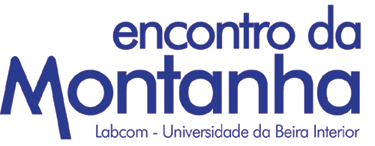 Curriculum
CurriculumRousiley C. M Maia got her Ph.D. in Politics from the University of Nottingham, U.K, and is an Associate Professor in Media and Communication Studies at the Federal University of Minas Gerais, Brazil. She is the author of “Media e Deliberação” (FGV, 2008), the co-author of “Comunicação e Democracia – Problemas e Perspectivas” (Paulus, 2008) and the editor of “Mídia, espaço público e identidades coletivas (Editora UFMG, 2006), among other articles on the mass media, internet, democracy and civil society. She directs the Research Group in Media and Public Sphere at UFMG and is currently working in the book “Media, deliberation and political talk” (Hampton Press).
Abstract
Mediated Deliberation: theoretical perspectives and methodological issues
The view of the news media as a forum for civic debate is familiar in political communication and public sphere studies. Researchers in this field assume basically that diverse problems and conflicts – and respective lines of inquiry, information, claims, and opinions – are made publicly available through different modes of representation by the media. Media content, particularly the news media, are seen as important resources for citizens to form their opinions and engage in discussions. In this paper, I explore more recent claims regarding the news media a locus of public deliberation. The premise here is that the news media can serve as a platform for dynamic exchange of “published opinions”, claims or justifications; and also for “contestation of discourses”. This approach is centrally concerned with the relationship between different speakers and their claims in the media arena. Versions of deliberative democracy for which the central feature are plurality of discourses or perspectives – and not individuals – offer a particularly compelling perspective for guiding an empirical research on mediated deliberation.
In part one of this paper, I begin by describing what I see as the fundamental characteristics of the concept of mediated deliberation. By examining previous studies on public debate in the media environment, I differentiate between studies grounded on discursive approach and those approach based on frame analysis, in order to clarify the main sources of theoretical diversity among researchers. In part two, I lay out what I see as the main variables to recognize mediated deliberation, along with their specificities in the mass media arena, and their implications for measurement. Based on Habermas’s discourse ethics and building on previous studies about public debate in mass communication, I propose the following variables for assessing mediated deliberation: (a) participant accessibility and characterization; (b) use of arguments; (c) reciprocity and responsiveness; and (d) reflexivity and reversibility of opinions. I argue that this set of minimal normative criteria should differentiate deliberation from other types of talk in political communication, and also provide guidance for measuring better and worse cases of the phenomenon. In part three, taking into consideration the main points mapped out, I briefly describe central strategies for measuring deliberativeness in print media.

Sem comentários:
Enviar um comentário